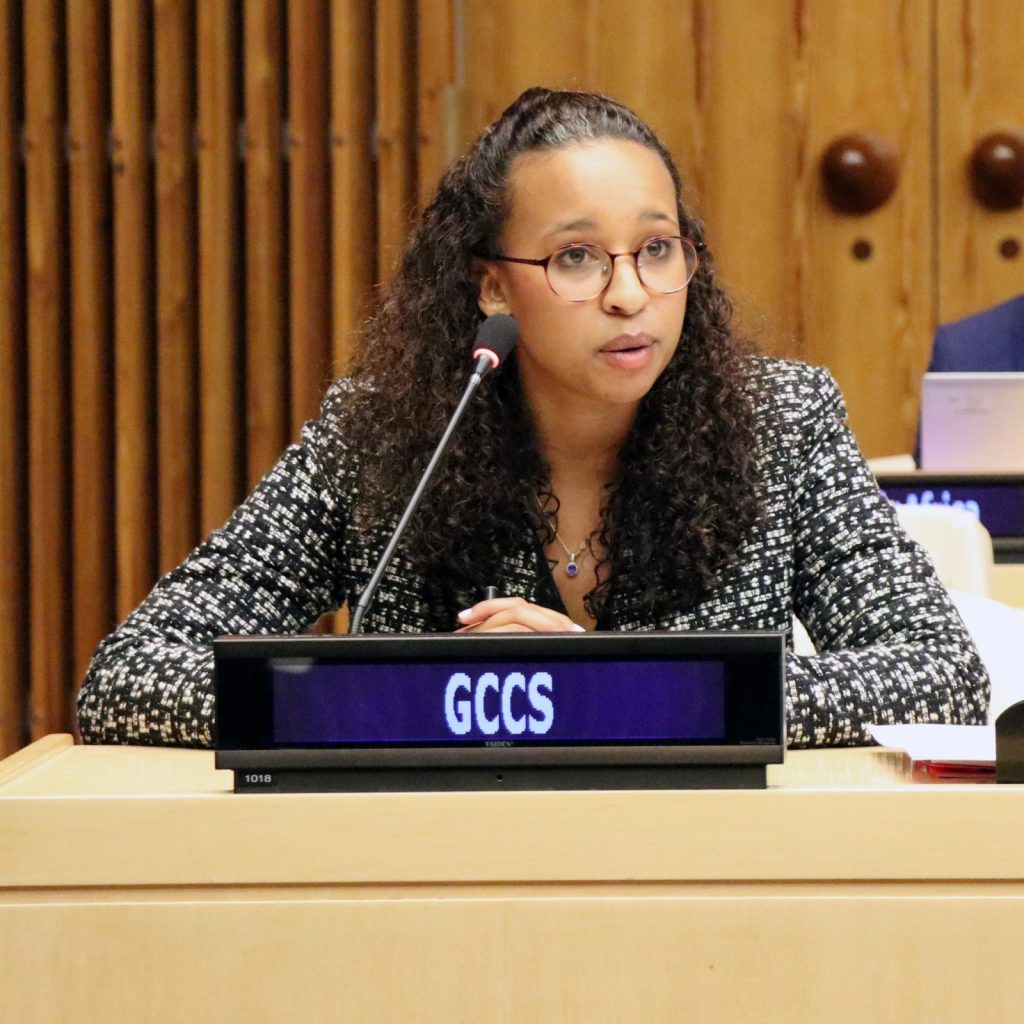Briefing the UN Security Council: ISIL financing schemes in Africa

In April 2022, Chania Lackey, Global Center Regional Programs Coordinator for Eastern Africa, addressed the Joint Open Briefing of the Counter-Terrorism Committee and the 1267/1989/2253 ISIL (Da’esh) and Al-Qaida Sanctions Committee on the issue of ISIL in Africa. Chania briefed the Security Council on the issues regarding the financing of ISIL-affiliated terrorist groups in Africa, especially through the trade of minerals and other extractives.
Drawing on the Global Center’s expertise in countering the financing of terrorism and our programming across the African continent, we have observed that ISIL cells and affiliates are largely self-financing, relying on both legal and illicit activities and using formal as well as informal channels to raise money. Notably, there are avenues for detection and disruption at each financing stage—raising, storing, and moving funds. However, doing so requires the private sector to be meaningfully and effectively engaged, a salient barrier in stemming terrorism financing in the region.
While the exploitation of oil and gas by ISIL has attracted significant attention over the last years, terrorist groups on the African context face significant barriers in obtaining the resources and honing the skills required to exploit oil or gas in territories where they are active. On the other hand, we have observed strategic exploits of precious metals and stones—in particular gold, which is present in at least 34 out of 54 African countries. Gold is attractive given its high and stable value, portability, and the cash intensive nature of the gold trade.
Artisanal gold mining has boomed since 2012, producing up to 2 billion US dollars’ worth annually. More recently, gold has drawn attention as a source of terrorism financing, with considerable activity reported in Central and West Africa. Gold poses particular vulnerabilities given the limited anti-money laundering and countering the financing of terrorism (AML/CFT) measures and controls in place across the continent. As such, ISIL affiliates are able to extort artisanal miners, mine gold themselves, and refine, sell, or tax gold that is traded both legally and illegally.
Chania illustrated a theoretical trajectory of how ISIL might extract, transport, and sell gold. She identified key points in the process where authorities might disrupt the process, again emphasizing that such interventions require coordinated engagement by across the public and private sector. In sum, ISIL’s self-financing model presents challenges to the existing CFT architecture, requiring collaboration from private sector entities on the frontlines of detecting and preventing terrorism financing.
See More